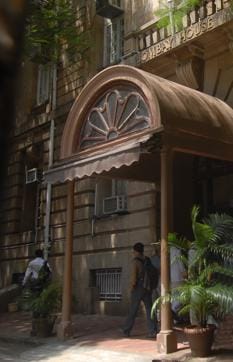Tata Vs Cyrus Mistry: Lessons from the battle for Bombay House
The ongoing war of words between Rata Tata and Cyrus Mistry in one of the biggest boardroom coups in India’s corporate history offers multiple learnings, for both employees and bosses, claim human resource managers.
Recall, American hollywood movie, Sully, a pilot who became a hero after landing his damaged plane to save the flight’s passengers and crew. Sully, however, was shaken to his core when the doubts started pouring over his heroic manoeuvre and questions were raised if Sully was a hero or a fraud.

A few recruiters believe Cyrus Mistry, recently ousted chairman of Tata Group, is probably that Sully. “Even if you think you have done a great job you can be subjected to very harsh criticism from other lens. It’s an old chapter in a new paperback,” said Biplob Banerjee, executive vice president, human resource at Jubilant FoodWorks Limited, operator of Dunkin’ Donuts and Domino’s Pizza in India.
The ongoing war of words between Rata Tata and Cyrus Mistry in one of the biggest boardroom coups in India’s corporate history offers multiple learnings, for both employees and bosses, claim human resource managers.
Top lesson is about the growing job insecurity. “Everyone is under the threat to lose job any day and anytime. No one’s job is secure, even if you think, you are the boss and are performing quite well,” pointed Rituparna Chakraborthy, co-founder of Teamlease Services, a staffing firm.
Also, heading a company would now mean you need to be in constant touch with the group of top leaders, no matter, how much liberty you enjoy while making decisions. “You need to be in constant touch with the air traffic controller, no matter how much flying hours you have under your belt,” Banerjee said.
Beginning this month, Ratan Tata, interim chairman of Tata Sons Ltd, justifying the replacement of Mistry in a letter to employees wrote, “As a group, we are steadfast in our resolve to maintain the Tata culture and value system that all of us have worked hard to nurture over the decades... The focus has to be on leading and not following.”
Considering that Mistry was the second from outside the Tata family to be asked to helm the empire’s affairs, the values and focus could be different, said experts. Bhavna Sud, client partner at Korn Ferry Hay Group, pointed, “Alignment of values is equally, if not more important, than performance contribution.”
“If Mistry would have read Tatayan, a biography about the Tata group in Marathi, before accepting the chairmanship, Mistry could have taken a hint from what Bombay Dyeing’s Nusli Wadia said while declining JRD Tata’s offer of chairing the Tata Group in the late ’80s: “I am anything but a Tata and prefer to remain a Wadia,” said another recruiter at leading conglomerate requesting anonymity.
Stay informed on Business News, TCS Q4 Results Live along with Gold Rates Today, India News and other related updates on Hindustan Times Website and APPs




